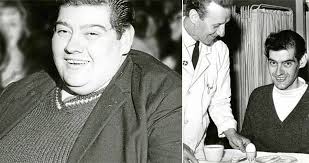Rhythmik
Jedi Master
Yeah I was pretty happy with myself when I managed to do 7 and then I spoke to someone online who claimed they did 40!try it out!
I’ve never made it past 6 days. I’ve long wanted to try a very extended fast.
I read a book years ago by Herbert Shelton who recommended we fast as many days as we are old in years once every year… I can imagine we’d all feel awesome if we could do that.

